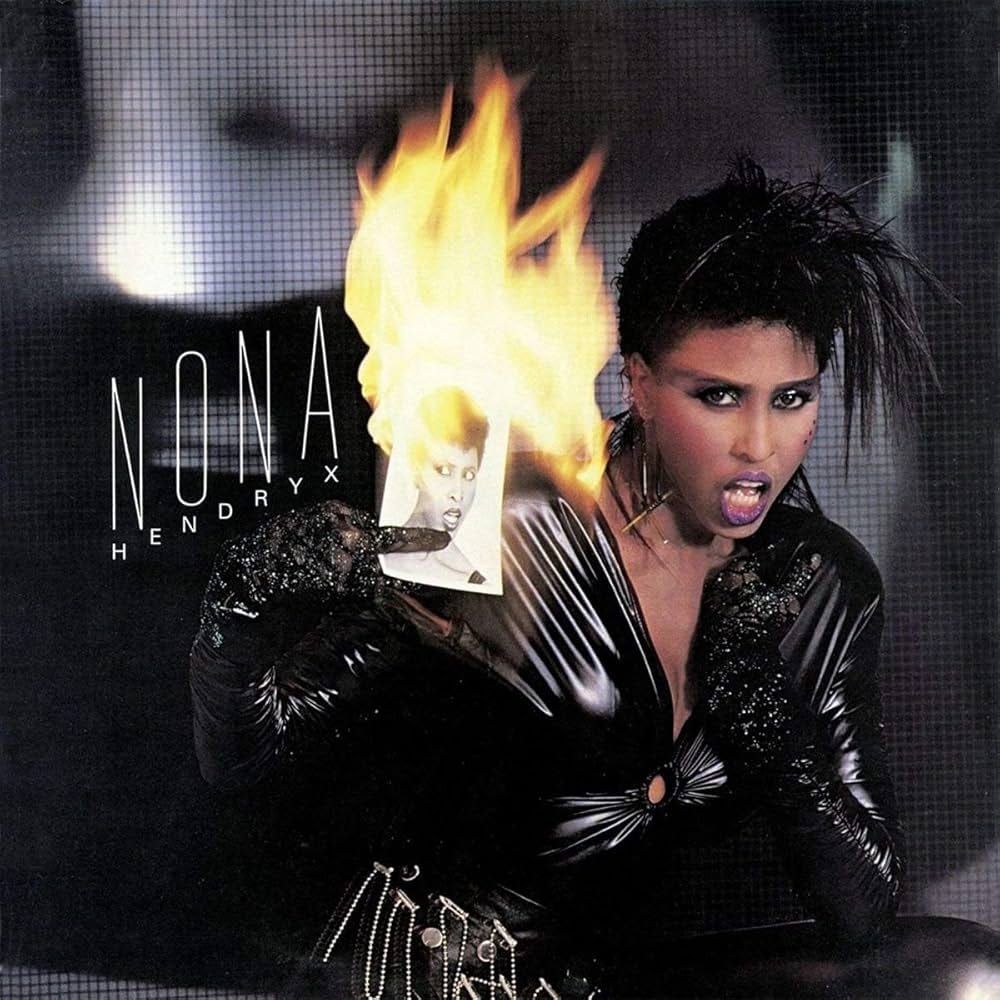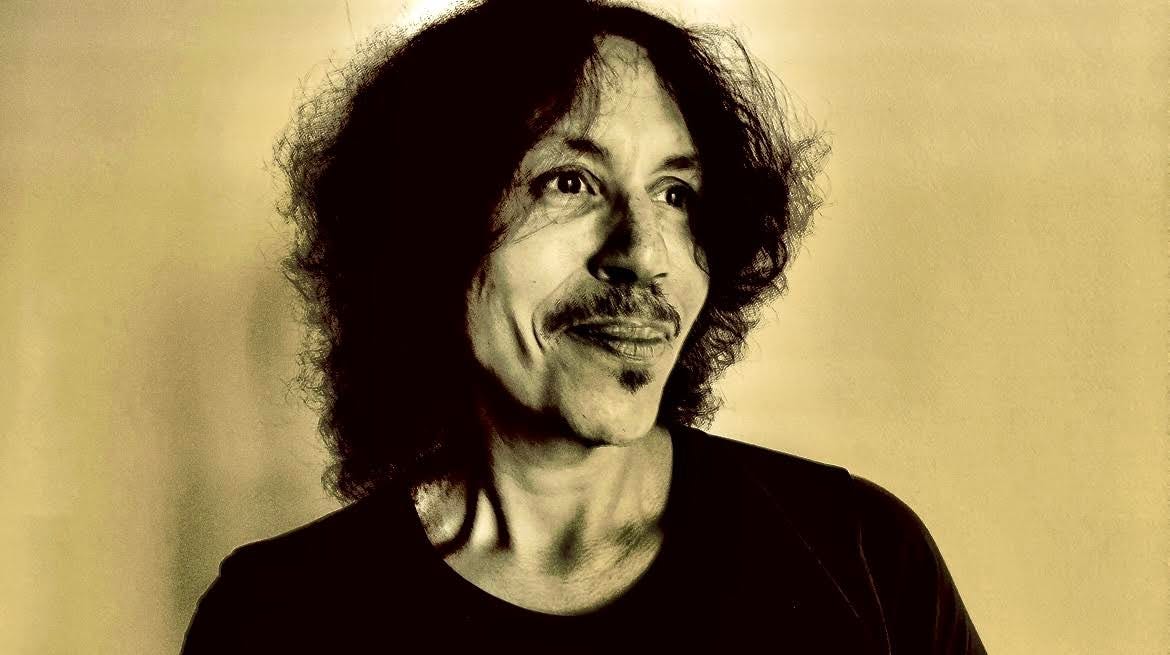On “Transformation” by Nona Hendryx
On the occasion of Nona Hendryx's 80th birthday, Daniel Alexander Jones writes of his adolescent discovery and lifetime reverence for the musical trailblazer
Welcome to The Artist’s Survival Guide, where artists share the art that got them through. A movie, a garden, a song, a meal, a favorite dance class, the novel that’s been read several times over. For many of us, these things give us faith, they are where we find comfort, succor and direction. Maybe a shift in perspective. I hope this column will do some of that for you, too. - Chris
On “Transformation” by Nona Hendryx
By Daniel Alexander Jones
I turn to a song that has been an oracle since first I heard it, at a time in my youth when I was caught in the middle of intimate though tectonic change.
Songs about change were a childhood staple, born as I was in 1970 within a latter season of advancement and bloody sacrifice in the Civil Rights Movement. The change my community sought was an aspiration that felt like certainty–-straight ahead! The songs assured and demanded. My parents spun the Fifth Dimension’s “Aquarius” on their record player; Mom strummed “The Times They Are A Changing” on her guitar; “A Change is Gonna Come” played on our neighbor’s radio, and the sounds of Walter Hawkins’s “Change” from speakers at the parsonage across the street filled the summer air. By the early 1980s, clouds had covered that sure, straight ahead Sun and I was living the contradictions on the dim side of hope.
I wanted nothing more than for junior high school to be over. I was bullied mercilessly. My peers had entered puberty with the buoyant force of an Olympic team in training, while my foot seemed caught in the starting gate. I unfurled sluggishly, awkward in every imaginable way in the punishing context of the slurs and blows my classmates dealt me on the daily. Yet, I refused to let the anxiety, sadness, and rage of my school days bleed into the hours I had at home. Nor did I want it to further stress my already worn-thin family who had enough to deal with. Whenever my parents asked about school, I kept my lips sealed around my Darth Vader headgear. That device had an elastic strap that went round the back of my head, and anchored to metal hooks that poked out from the corners of my mouth. Despite my intentions, a shadow hung around me that no amount of pluck could fully dispel.
One day at the cusp of Summer in 1983, Dad surprised me with a magical machine. A Sanyo personal cassette player with adjustable headphones, aka, the low-budget Walkman. I unpacked the treasure from its box, slipped it into its silver pleather case with snaps. It had a strap to wear over or across the shoulder, like Mr. Spock’s Tricorder. Outside in the backyard where fresh green leaves and flower stems sprung in all directions, I toggled the switch. A tiny red light began to glow and the sounds of the radio flooded the seam side of my head, while electricity coursed through my body. Feelings I struggled to keep at bay each day roared up, responding to the call of the sound: rage at the changes I saw unfolding around me as the deep cuts from Reagan’s administration began to rend the social fabric of my community. Estrangement from my peers with no perceivable shift toward connection on the horizon. Unease with the sexual desire I began to feel for the bodies of some of my bullies. Longing for increasingly fleeting moments of laughter and ease in my family. Yet, a promise pulsed in the music–-a rising wholeness. Always, the music, the music. The music was my holy text. Singers and bands my heavenly hosts. That afternoon was a rush of pure pleasure. A golden hour.
Supernova artist Nona Hendryx wrote and recorded “Transformation” on her 1983 album Nona. I already knew her as a warrior angel. Labelle was among the first groups to imprint themselves on my memory as a child in the mid-70s; I recall reading her name listed as songwriter each time it spun around in tiny black type on the orange and white Epic Records label of the Nightbirds album on my parents’ record player. Throughout the Summer of ‘83, I’d play one of her songs from Nona again and again on that silver player; it taught me more about change than any other.
“Rust to dust, us to them
Change your mind, change your skin
Life to death, weak to strength
Cash a check, change your sex…”*
“Transformation” was a nocturnal visitor who bore unflinching witness. As I softly mouthed the words, deep in the cut of the night, the song conjured the presence of a future self reaching back to me. This as the mooring posts of my childhood faded in the distance, and some radical stirring in my bones kept me up in wee hours. The future self was perhaps my own version of a warrior angel, whose eyes burned with truth and whose hands were strong and capable.
“Day to night, dark to light
Hard to soft, on to off
Push to shove, hate to love…”*
Hendryx’s song, with its subby bassline and morphing synth waves, had oceanic heft. Her arcane intonations sounded otherwise unspeakable truths as present as pulse. She uttered the testimony of a soul’s witness through the song. Hendryx’s music was both in time and across time. As she sang:
“I move and I go
In time, fast or slow
I move, because
Each time there's some more”*
Hendryx’s change was always. Not up ahead or back in the day but a constant, undulating present reality. Transformation demanded risk, surrender, acknowledgment and bravery as you danced with the devils you knew and sought out angels who’d seemingly abandoned their posts. Hendryx demanded her listeners understand that it was the ultimate province of Mother Nature, this change. Octavia Butler would describe such divine force a decade later in her prophetic Parable of the Sower, “All that you touch you change. All that you change, changes you. The only lasting truth is change. God is change.”
“In and out, it's all about
They're just transformations
Variations, alternations, deviations
You know, Mother Nature rules us all”*
The great wheel turns and I am again today radioactive with change. My microcosmic share of the macrocosm of national paroxysm and global catastrophe since 2020 includes the death of seven key people including my parents, who were mooring posts. I resigned from my job and left NYC after 15 years. Plus, the field of theatre and performance contracted and I and several folks I know experienced years-long projects drying on the vine. I have thus been undergoing the greatest internal transformation thus far of my life, and the changes in me have led to estrangement from many others I loved deeply. Throughout, I could only comprehend my grief as but a drop in a much larger sea of collective grief and a much larger call toward life. Especially as multiple unchecked violences rage abroad and the U.S. is at, if not over the edge in all directions. Hendryx and her prophetic songs remain vital. Recently she appeared in the NY Times to discuss her innovations in AI and Afrofuturism. I press play on “Transformation” My breath finds my belly.
“Fist to glove, lose or win
You live a life of sin, then you're born again
Trash to art, heart to heart
Big or small, we're all a part…”
Transformation. It’s never done.
*All italicized lyrics taken from “Transformation” by N. Hendryx, C. Pope, and K. Staples, ©1983
Daniel Alexander Jones is an artist and sojourner whose award winning body of work spans several disciplines. Love Like Light, a collection of his plays and performance texts is published by 53rd State Press, alongside the volume Particle & Wave, a conversation with Alexis Pauline Gumbs. Recent work includes the album Aquarius, and the album Aten and extended digital project www.aten.life. A TED Fellowship, a Guggenheim Fellowship, and the Doris Duke Artist Award are among his honors. Jones was a Professor of Theatre at Fordham University, and taught in arts programs at Goddard College, the University of Texas at Austin, and, currently, at CalArts. Jones is a resident artist with CTG and serves on the board of the Jerome Foundation.










Wonderful read- thank you for reminding me about Nona and introducing me to Daniel.